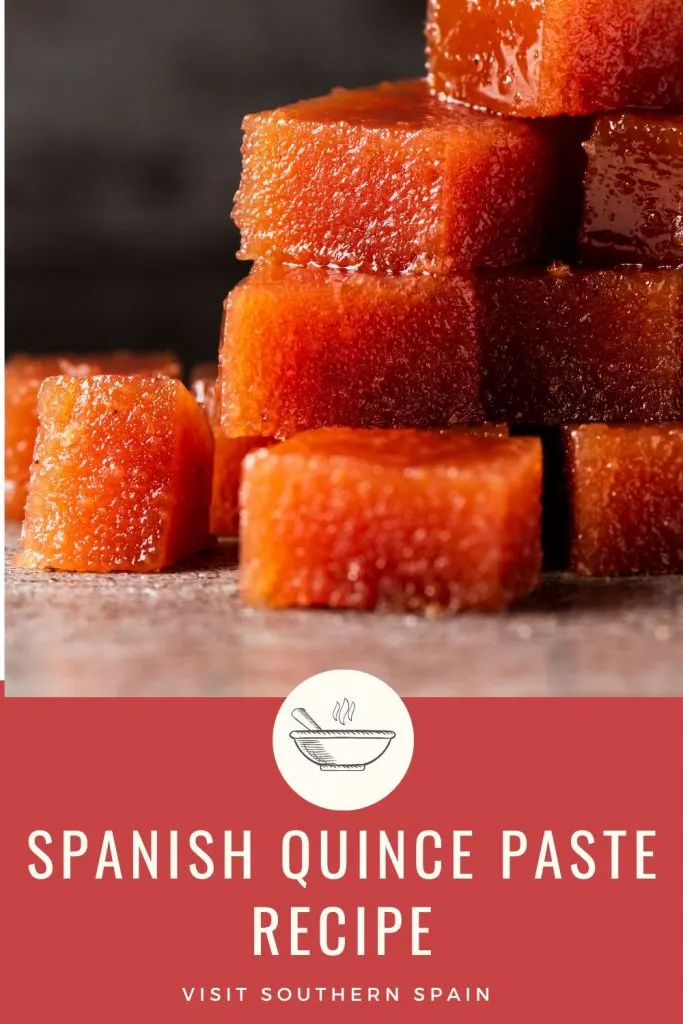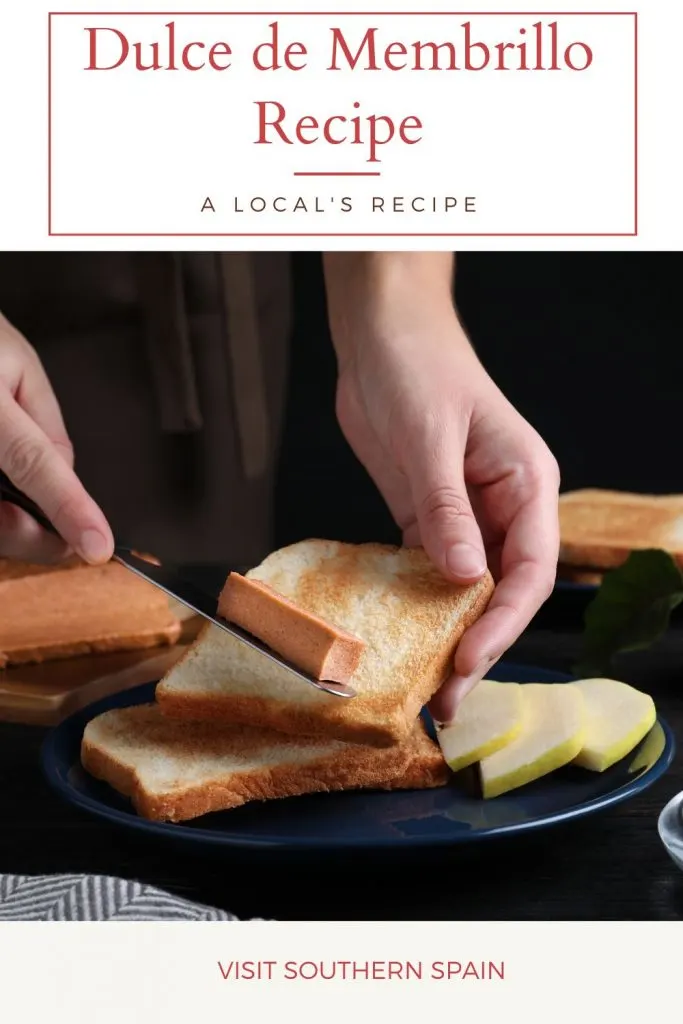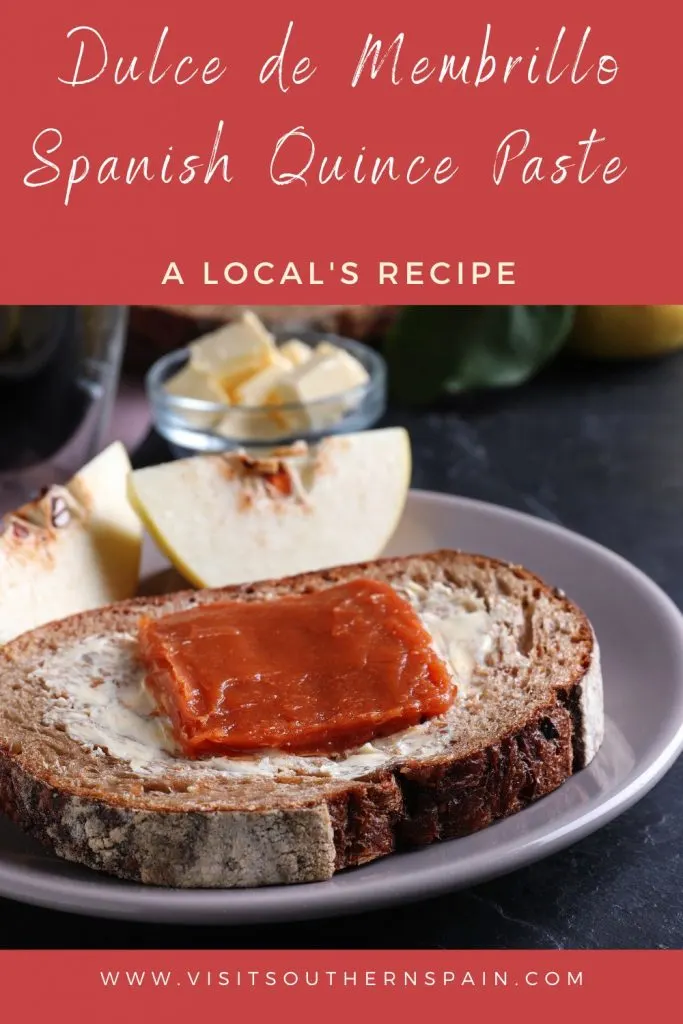If there is something we can agree on, it is that during the autumn months we can find the best quality fruits: they are juicy and full of flavor.
The only bad thing is that there are times when we have a lot of fruit and it will go bad or we don’t know what to do with it.
For those moments, the famous dulce de membrillo comes to the rescue.
In this article, we will tell you what is membrillo, and how you can turn it into a paste to have the most wonderful and easy-to-eat Spanish dessert of all time.

You, dear reader, support this blog. If you purchase through a link, we earn a small commission. As an Amazon Affiliate, we earn from qualifying purchases.
Background of the Dish

The word “membrillo” stands for quince fruit, which is popular in several countries, but the dulce de membrillo comes from southern Spain.
Quince trees were originally from Asia until they were brought to the Iberian Peninsula, being found in Portugal and Spain.
It is a tree that bears many fruits, so during the autumn months, there was so much quince fruit that fell from the trees that people did not know what to do.
Trying new recipes, a group of Andalusians came up with the recipe for quince paste and the rest is history.
Today the paste is used as a dessert by itself, or in combination with others.
Pin for later!
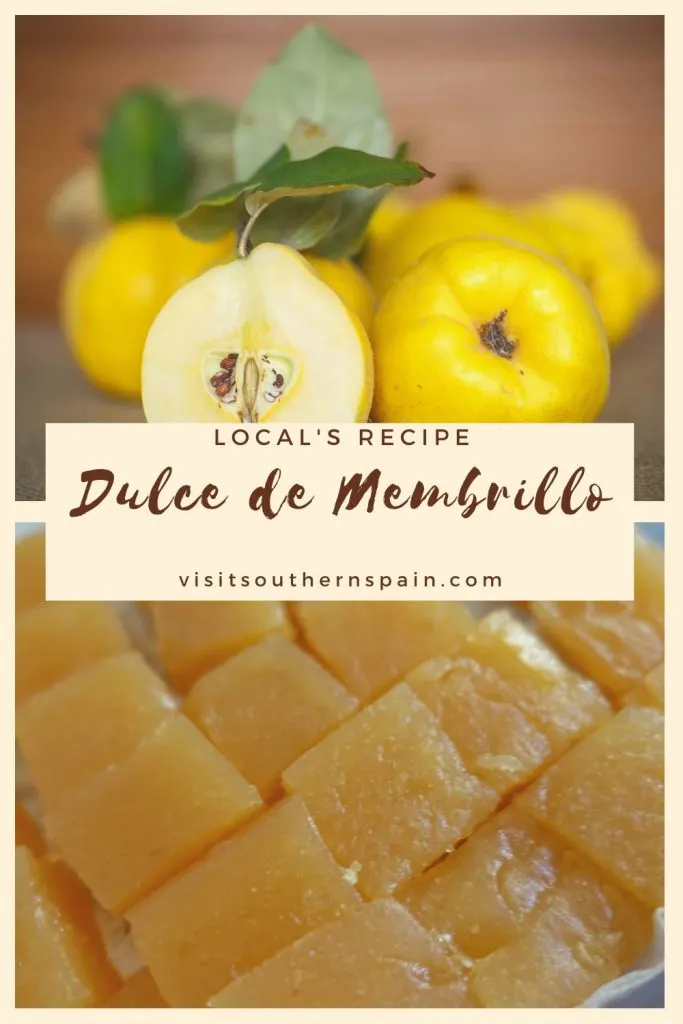
Things You’ll Need for Dulce de Membrillo
![Dulce de Membrillo Recipe[ Sweet Spanish Quince Paste ]](https://visitsouthernspain.com/wp-content/uploads/2022/10/quince-paste.jpg.webp)
To make this dulce de membrillo recipe you only need two ingredients: quince and sugar.
It is super simple, and it can be the perfect start on your trip of trying Andalusian recipes, you can also try others such as fried buñuelos, Torrijas, and Spanish turron.
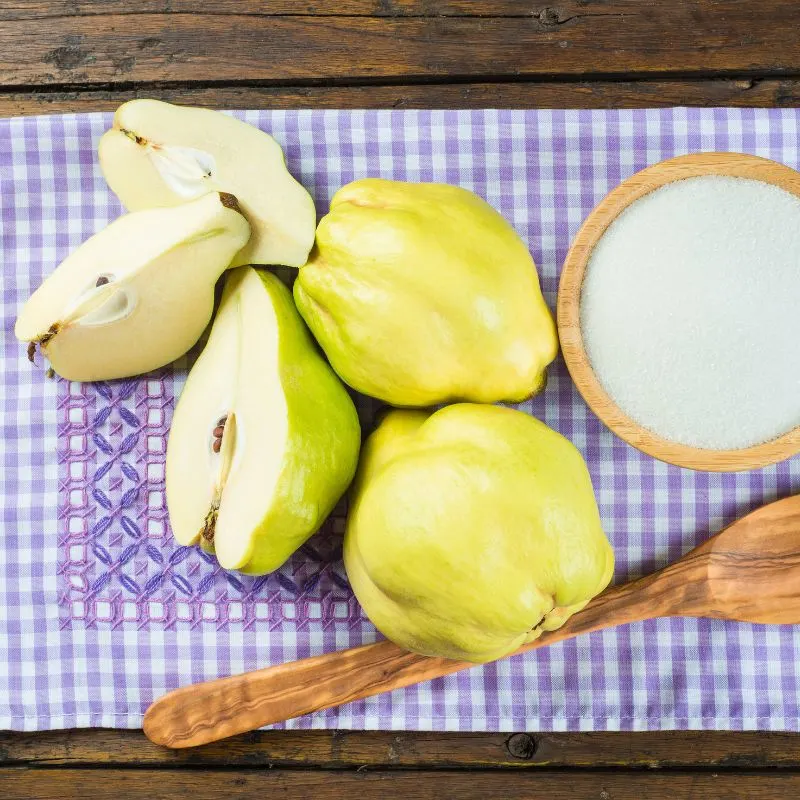
Ingredients
- 1200g quinces (yellow and ripe)
- 4 cups (800g) sugar
How to Make Dulce de Membrillo – Step by Step Guide
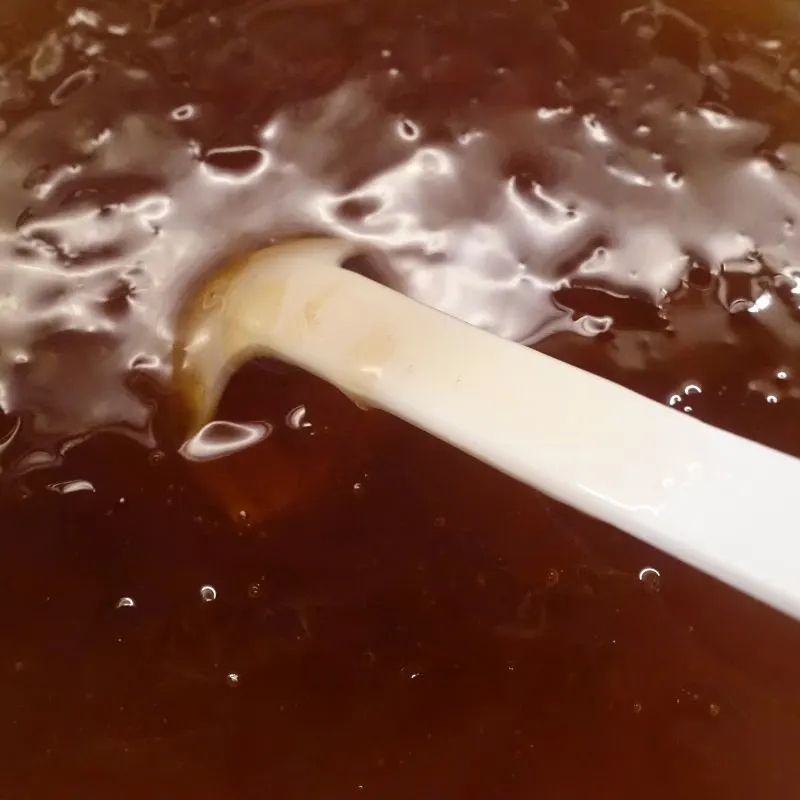
- To make this quince paste recipe, you have to start by washing the quinces well and placing them in a large pot. Cover them with water and bring them to a boil over high heat. When it reaches the boiling point, lower the flame to medium heat and continue cooking the whole quince for 40 minutes.
- Take the quinces out of the pot, put them in a colander, and let them cool. When they are at a temperature that allows them to be handled, peel them using a knife or a potato peeler.
- Cut them in half to remove the heart with the seeds and cut the pulp of the quince into cubes.
- In this step, it is convenient to use a kitchen scale to weigh the amount of pulp obtained and calculate the exact amount of sugar that will need to be added to make the quince paste. 80% of the resulting weight of the cooked pulp, in sugar, will be used. If 1000 grams were obtained, it would be necessary to use 800 grams of sugar to make the quince paste.
- In a large saucepan, pour the quince pulp and add the sugar. Cook over low heat, stirring continuously. In this process, which lasts about 10 minutes, the sugar will gradually integrate with the fruit.
- To have a homogeneous texture, pass the mixture through a blender before continuing to make the paste.
- Return the pasta to the pot and resume cooking. Stir with a wooden spoon to prevent the candy from sticking to the bottom of the pot and to distribute the heat evenly. The quince paste will take a darker pink color as it gets cooked.
- Continue cooking until when you insert the wooden spoon vertically it stops without falling to the sides.
- Transfer the mixture to a glass or silicone mold, let it come to room temperature, and place it in the fridge, covered with film.
- In 12 hours the homemade quince paste will be ready to eat.
Substitution of Ingredients
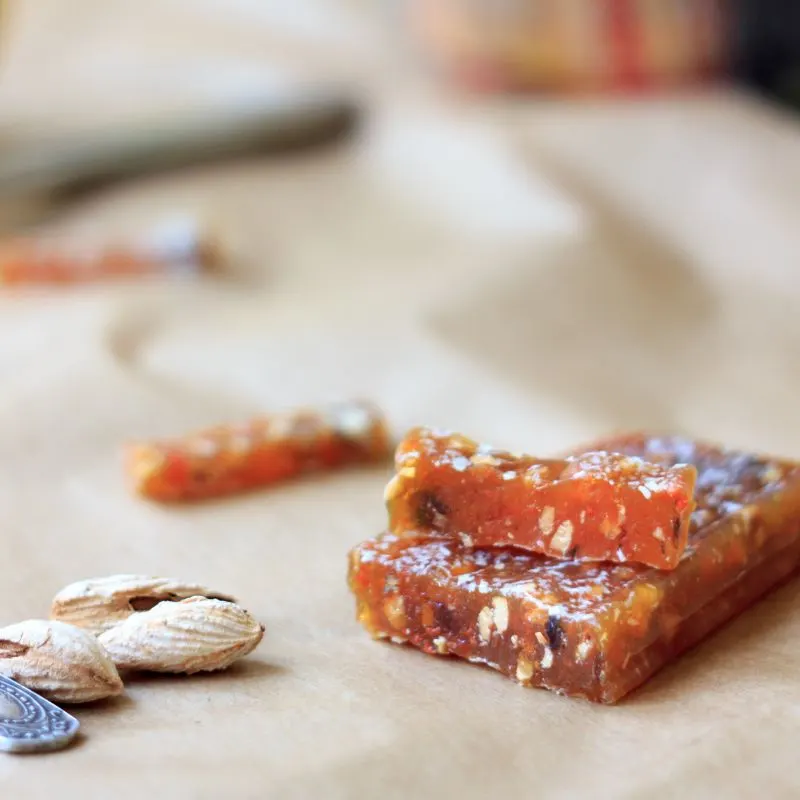
Technically, you shouldn’t change any ingredients since there are only 2, and they are essential for this recipe to work well.
But if you can try other quince recipes to make it easier for you.
The easiest thing to do if you need a recipe with less sugar is quince jam or quince jelly since in that case you use half the sugar and add between 2 and 2 1/2 cups of water.
Another thing that you can do is add some of your favorite nuts and seeds to the dulce de membrillo, in this way making the quince paste more nutritious.
You can also try replacing the quince with another fruit, such as pear, strawberries, peach, etc. Although of course in that case it wouldn’t be dulce de membrillo.
Tips on Serving Dulce de Membrillo
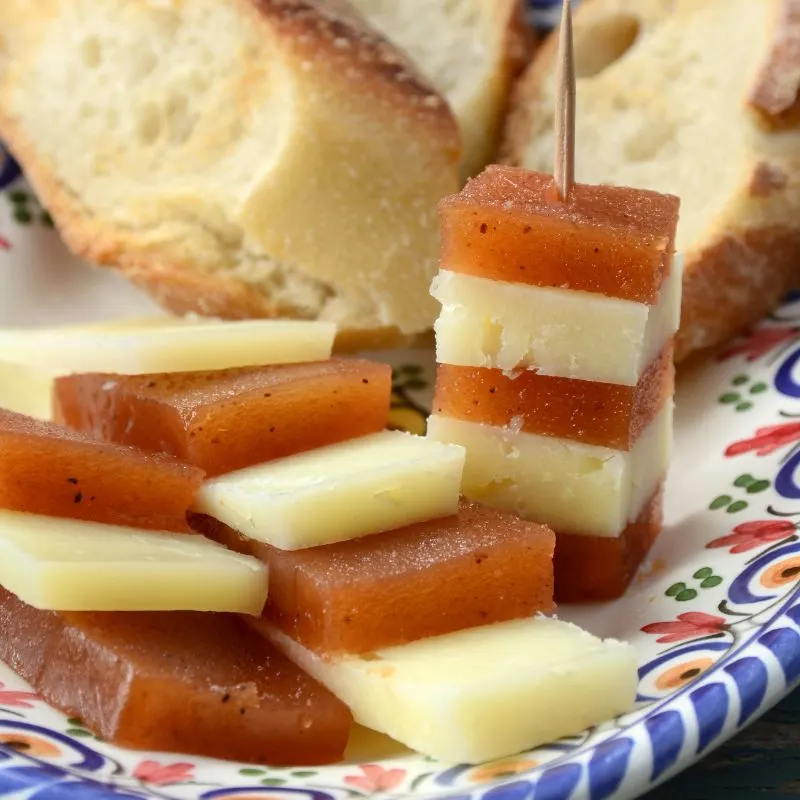
This is one of the most popular quince dessert recipes since it is not only good to eat as a dessert, but you can modify it a little and serve it as an appetizer or as a snack.
There is something called quince cheese, which is when you cut a bit of quince jam and eat it with a slice of cheese (it can be some hard or soft cheese, either is fine!).
That is the perfect option for a snack board.
You can also serve it with other Andalusian Pestiños and Huesos de Santo desserts or snacks. You can do something like “opposite day” and eat them for dinner or lunch.
How to Store Dulce de Membrillo
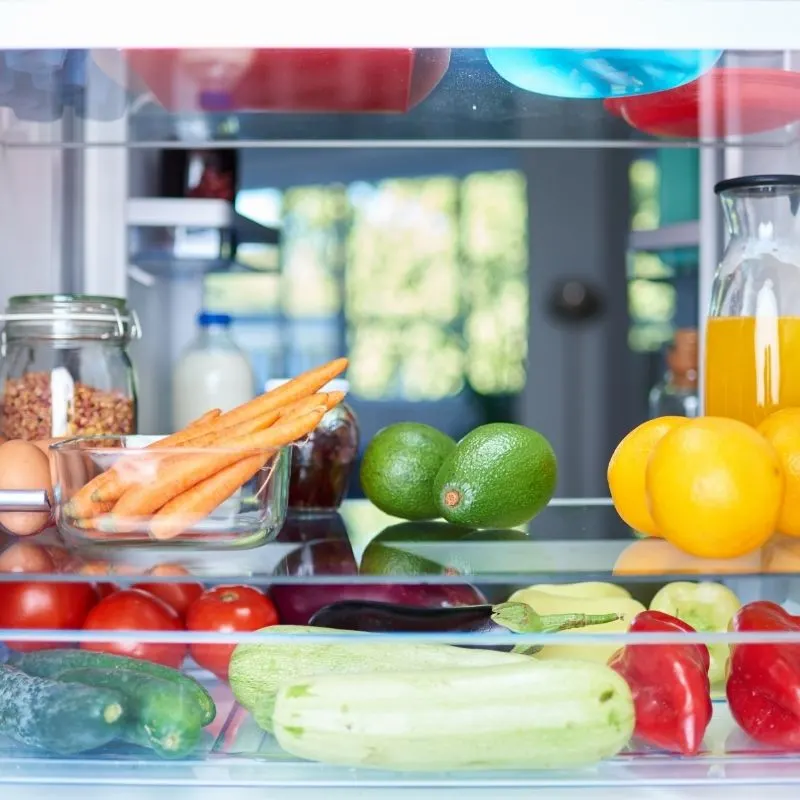
If you follow this exact quince recipe, thanks to the amount of sugar it has, it can last for weeks in the fridge if you cover it correctly.
You can store dulce de membrillo in a closed container or cover it with plastic wrap.
Some people say that it can last up to 2 months, but we do not recommend that you leave it for more than 3 weeks, otherwise it will not be very fresh.
This quince Spanish cannot be frozen since otherwise it would take on a bad and crystallized texture.
Recipe Card: Dulce de Membrillo
Dulce de Membrillo Recipe
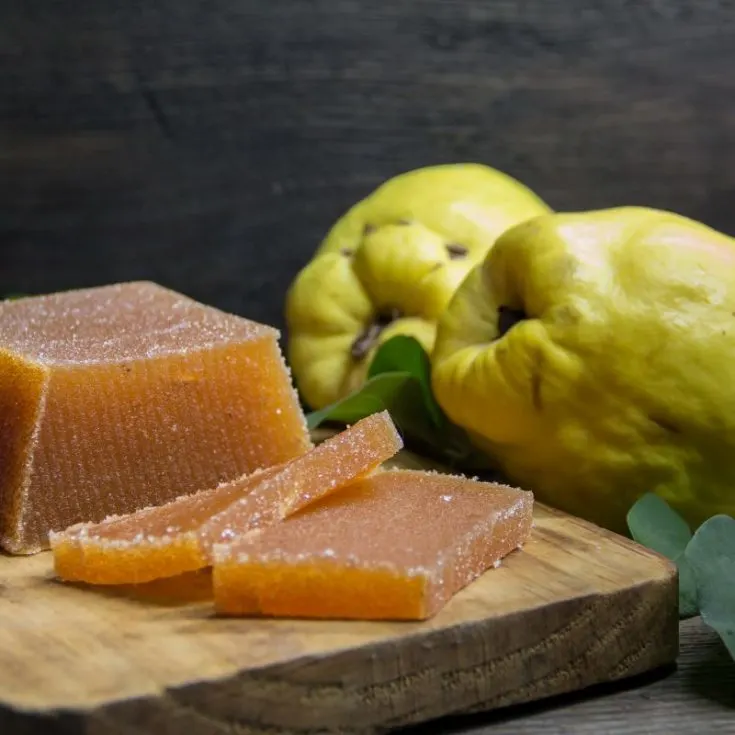
If there is something we can agree on, it is that during the autumn months we can find the best quality fruits: they are juicy and full of flavor.
The only bad thing is that there are times when we have a lot of fruit and it will go bad or we don't know what to do with it.
For those moments, the famous dulce de membrillo comes to the rescue.
Ingredients
- 1200g quinces (yellow and ripe)
- 4 cups (800g) sugar
Instructions
- Wash the quinces well and place them in a large pot. Cover them with water and bring them to a boil over high heat. When it reaches the boiling point, lower the flame to medium heat and continue cooking the whole quince for 40 minutes.
- Take the quinces out of the pot, put them in a colander and let them cool. When they are at a temperature that allows them to be handled, peel them using a knife or a potato peeler.
- Cut them in half to remove the heart with the seeds and cut the pulp of the quince into cubes.
- In this step, it is convenient to use a kitchen scale to weigh the amount of pulp obtained and calculate the exact amount of sugar that will need to be added to make the quince paste. 80% of the resulting weight of the cooked pulp, in sugar, will be used. If 1000 grams were obtained, it would be necessary to use 800 grams of sugar to make the dulce de membrillo.
- In a large saucepan, pour the quince pulp and add the sugar. Cook over low heat, stirring continuously. In this process, which lasts about 10 minutes, the sugar will gradually integrate with the fruit.
- To have a homogeneous texture, pass the mixture through a blender before continuing to make the paste.
- Return the pasta to the pot and resume cooking. Stir with a wooden spoon to prevent the candy from sticking to the bottom of the pot and to distribute the heat evenly. The quince paste will take a darker pink colour as it gets cooked.
- Continue cooking until when you insert the wooden spoon vertically it stops without falling to the sides.
- Transfer the mixture to a glass or silicone mould, let it come to room temperature and place it in the fridge, covered with film.
- In 12 hours the homemade dulce de membrillo will be ready to eat.
Notes
For this membrillo recipe, it is recommended to let it cool for 12 hours or overnight. We can assure you that it is definitely worth the wait.
If you make a recipe for quince jelly, then you should add one cup of water, and the cooking time should be cut in half.
Nutrition Information
Yield
8Serving Size
1Amount Per Serving Calories 461Total Fat 0gSaturated Fat 0gCholesterol 0mgSodium 6mgCarbohydrates 123gFiber 2.9gSugar 100gProtein 0g



Hola, I’m Paulina! Together with my team, we are passionate about Southern Spain. Here we share all you need to know for great times in Southern Spain with the best places to visit, stay and, of course, the best food to eat.
Let’s dive in and explore Southern Spain’s outdoors, food and culture con pasión!

